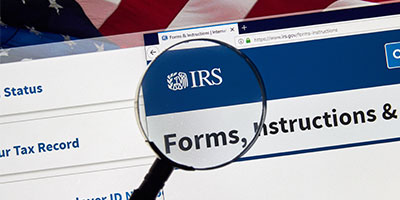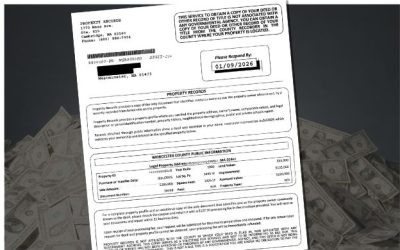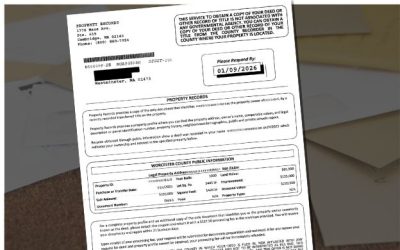
Jun 19, 2025 | Around The Home, Around The Hoome, Artificial intelligence, Buying Real Estate, Chapter 7 Bankruptcy, Consumer Tips, Credit Scoring, Fair Housing, Federal Reserve, FHFA, Financial Crisis, Financial Fraud, Financial Reports, Foreclosure, Happy Thanksgiving, Holidays, Home Building Tips, Home Buyer Tips, Home Buying Tips, Home Care, Home Care Tips, Home Closings, Home Decorating, Home Financing Tips, Home Maintenance, Home Mortgage, Home Mortgage Tips, Home Seller Tips, Home Selling Tips, Home Tips, Home Values, Homebuyer Tips, Homeowner Tips, Housing Analysis, Housing Market, Interesting Stuff, Investment Properties, Legislation, Market Outlook, Mortagage Tips, Mortgage, Mortgage Guidelines, Mortgage Lenders, Mortgage Rates, Mortgage Tips, mortgage-rates-whats-ahead-september-17-2012, News, Organization Tips, Personal Finance, Probate Law, Rankings, Real Estate, Real Estate Agent Information, Real Estate Definitions, Real Estate Tips, Real Estate Trends, Realtors, Selling Real Estate, Selling Your Home, Short Sales, Statistics, Success, Taxes, The Economy, Title Insurance
Whether you’re buying with cash, investing from abroad, transferring property to a family member, or just trying to close without a headache, you’ll want to know what can trigger federal scrutiny — and how to stay off the radar.
From flagged wire transfers and shell companies to gift-of-equity sales and land near military zones, this isn’t your average title-and-keys situation.
It’s real estate with a side of national security, tax enforcement, and financial crime prevention.
Is Big Brother Watching Your Home Sale?
What Buyers and Sellers Should Know About Federal Oversight
You’re Not Paranoid — They Might Actually Be Watching
What you didn’t know on how federal agencies keep tabs on select real estate transactions.
Your Closing Packet Could Be a Federal File
How Your Paper Trail Might Raise Red Flags — And What You Can Do About It
What the FBI, IRS, and Homeland Security
Could See in Your Closing Docs
We’re unpacking what agencies might spot inside your deal’s fine print.
Caught in the Crosshairs? What Triggers Federal Interest in Your Home Sale
The Top Red Flags That Could Invite a Closer Look from Washington
Cash, LLCs, or Land Near a Base? You Might Just Be a Target
The warning signs that put your deal on the government’s radar — and how to stay clear.
Follow the Money: How the IRS Tracks Financial Crimes Through Real Estate
From Unreported Income to Shell Game Schemes
— What IRS-CI Is Looking For
Your Closing Could Be an Audit Trigger — Here’s How the IRS Sees It
Explore the patterns, documents, and loopholes that turn ordinary deals into criminal cases.
Providing title, escrow, closing and settlement services to clients throughout Massachusetts and New Hampshire
“As a realtor, the Rocheford team went above and beyond to make sure my client was not only protected from a legal standpoint but also operated in a timely manner to execute the sale of my client’s dream home.
Thank you for the great experience for myself and my client! Looking forward to our next deal together!”
Realtor®
“I don’t usually use attorneys that often. But if an attorney is needed, I couldn’t recommend this law office enough. I always pride myself on responding quickly to emails and calls, but I was in awe of how fast paralegal Robert Heckman would respond to us. We sold our house a couple months ago and then did a two-part land swap with neighbors and my folks, and both transactions were seamless, including coming in to sign paperwork.
In short, if you need a law office that is responsive and attentive to detail, definitely consider them!”
Leominster, MA
“Excellent, conscientious and professional.
The communication throughout our Real Estate transaction was better than expected. We thought the fee to be very reasonable considering the work accomplished on our behalf. The law office handled the entire closing without us having to be in attendance….as we requested. I have had experience with very competent lawyers and law firms as the result of my previous profession. I would place this law office right up there among the best in their real estate field of expertise and surprisingly at very reasonable and affordable rates/fees.”
Buzzards Bay, MA

May 13, 2024 | Buying Real Estate, Mortgage Guidelines, Mortgage Lenders
The FHA is insuring a greater percentage of loans than during any time in recent history. In 2006, it insured roughly 5 percent of the purchase mortgage market. Today, it insures one-quarter. “Going FHA” is more common than ever before — but is it better?
The answer — like most things in mortgage — depends on your circumstance.
Like its conforming counterpart, an FHA-insured mortgage is available as a fixed-rate loan and as an adjustable-rate one. Payments are made monthly and come without prepayment penalties.
That’s where the similarities end, however, and decision-making begins. For homeowners and buyers across Worcester , FHA mortgages carry a different set rules as compared to conforming loans through Fannie Mae or Freddie Mac that can render them more — or less — attractive for financing. (more…)
Dec 18, 2015 | Mortgage Guidelines
What Do Lenders Have To Tell You About Your Real Estate Loan?
Federal “disclosure” forms define the information that creditor businesses MUST provide to consumers applying for real estate loans.
As of Oct 1, 2015 lenders must provide TWO New “TRID” disclosure forms. for the most common kinds of real estate loans First, the Loan Estimate, which covers the key features, costs and risks of a mortgage loan.
For an approved loan this must be returned to the consumer within 3 business days of loan application. If the loan goes forward, the Closing Disclosure form, covering key transaction costs, must be delivered at least 3 business days before loan consummation.

May 22, 2013 | Mortgage Guidelines
One of the things that I try to explain to borrowers at closing is that the most important document they sign for the lender is the promissory note. The promissory note is the borrower’s written promise to pay the loan back to the lender at a certain rate for a certain term. The note details the amount of the loan, the interest rate and the duration of the loan payments. It also states that the borrower agrees to execute a mortgage as evidence of the debt due to the lender. The mortgage is the security instrument for the repayment of the debt. (more…)
Apr 22, 2013 | Mortgage Guidelines, Mortgage Lenders
By David Bremer – Shamrock Financial Corp.
Breaking News! The HARP Loan is extended another 2 years until December 31, 2015.
That’s fabulous, but what’s HARP again?
HARP is the Home Affordable Refinance Program created for homeowners that either don’t have sufficient equity for a traditional refinance or are simply under-water and owe more than their home is currently worth. Without this program, most of these homeowners couldn’t take advantage of today’s fantastically low interest rates.
So far over 2 million homeowners have refinanced through HARP. The program was due to expire at the end of 2013 but it was determined that so many more homeowners are still eligible and in need of assistance so the FHFA (Federal Housing Finance Agency) decided to go ahead and extend the program until the end of 2015. Other than extending the end date, they have made no other changes at this time.
To qualify you must meet all of the following guidelines:
- Your loan must be owned by Fannie Mae or Freddie Mac. Note that that Fannie and Freddie don’t service the loans. Most conventional loans being serviced by lenders all across the country are actually owned or guaranteed by Fannie or Freddie so there is a good chance that if you have a conventional loan, it is too.
- Your current first mortgage must have been closed and sold to Fannie or Freddie on or before May 31, 2009. Some lenders took longer than others to deliver their loans to Fannie or Freddie but if you closed before this date you could be eligible.
- If you owe less than 80% of what your home is worth then you would qualify for traditional refinancing so you aren’t eligible for HARP but if you owe more than 80% of the value and even if you owe more than your home is worth, you may be eligible for HARP refinancing.
- You must be current on your mortgage with no late payments in the last 6 months and no more than one 30 day late payment in the last 12 months.
In addition:
- You can have a second mortgage or equity line and still be eligible. The new loan will not be able to refinance out of the second mortgage but you could still refinance the first mortgage for a lower rate.
- HARP is available for owner occupied properties, second homes and even investment properties.
- If you already refinanced under HARP then you aren’t eligible to do so again.
Don’t guess whether you are eligible or not! Check with a professional mortgage loan officer. They can quickly determine if you would qualify for this program or if you may qualify for another program. There are streamlined programs for FHA, VA, USDA and other mortgage loans. Even more importantly, if you checked in the past-check again!
When HARP was first announced, many people asked about refinancing and were told they didn’t qualify. The guidelines changed some at the beginning to allow more people to qualify. Also, even after the guidelines were expanded, it took many lenders a long time to be ready to handle the loans. As a result, many individuals who checked early on in the process were told they did not qualify and haven’t checked again. It is worth a phone call to find out for sure. Check with us at Shamrock and download our FREE HARP 2.0 Toolkit, which is filled with more information on qualifying for this program.
David Bremer – With over 8 years as a loan originator, David has always served the purchase market first because that is where you EARN a customer for life. Going above and beyond to ensure his clients are comfortable with the process and have a full understanding of their options are David’s strengths. David spends his time away from work with his wife, 3 children and their extended family and friends. David may be reached at david.bremer@shamrockfinancial.com.
Cell: 978-302-0475
Nov 14, 2012 | Mortgage Guidelines
 According to the Federal Reserve’s quarterly Senior Loan Officer Survey, it’s getting easier to get approved for a home loan.
According to the Federal Reserve’s quarterly Senior Loan Officer Survey, it’s getting easier to get approved for a home loan.
Between July – September 2012, fewer than 6% of banks tightened mortgage guidelines — the fourth straight quarter that’s happened– and roughly 10% of banks actually loosened them.
For today’s buyers and refinancing homeowners in Worcester County area , softening guidelines hint at a quicker, simpler mortgage approval process; one which gives more U.S. homeowners better access to today’s ultra-low mortgage rates.
However, although banks are easing guidelines, it doesn’t mean that we’re returned to the days of no-verification home loans. Today’s mortgage applicants should still expect to provide lenders with documentation to support a proper loan approval.
Some of the more commonly requested documents include :
- Tax returns, W-2s, and pay stubs : In order to prove income, lenders will want to see up to two years of income documentation. Self-employed applicants may be asked for additional business information. Borrowers earning income via Social Security, Disability Income, Pension or other means should expect to provide documentation.
- Bank and asset statements : To verify “reserves”, banks will often require up to 60 days of printed bank statements, or the most recently quarterly reports. Be prepared to explain deposits which are not payroll-related — banks adhere to federal anti-money laundering laws.
- Personal identification documents : To verify your identity, banks often require photocopies of both sides of your drivers license and/or U.S. passport, and may also ask for copies of your social security card.
In addition, if your credit report lists collection items, judgments, or federal tax liens, be prepared to discuss these items with your lender. Sometimes, a derogatory credit event can be eliminated or ignored during underwriting. Other times, it cannot.
The more information that you share with your lender, the smoother your mortgage approval process can be.
As the housing market improves and lender confidence increases, mortgage guidelines are expected to loosen more. 2013 may open lending to even more mortgage applicants.















 According to the Federal Reserve’s quarterly Senior Loan Officer Survey, it’s getting easier to get approved for a home loan.
According to the Federal Reserve’s quarterly Senior Loan Officer Survey, it’s getting easier to get approved for a home loan.